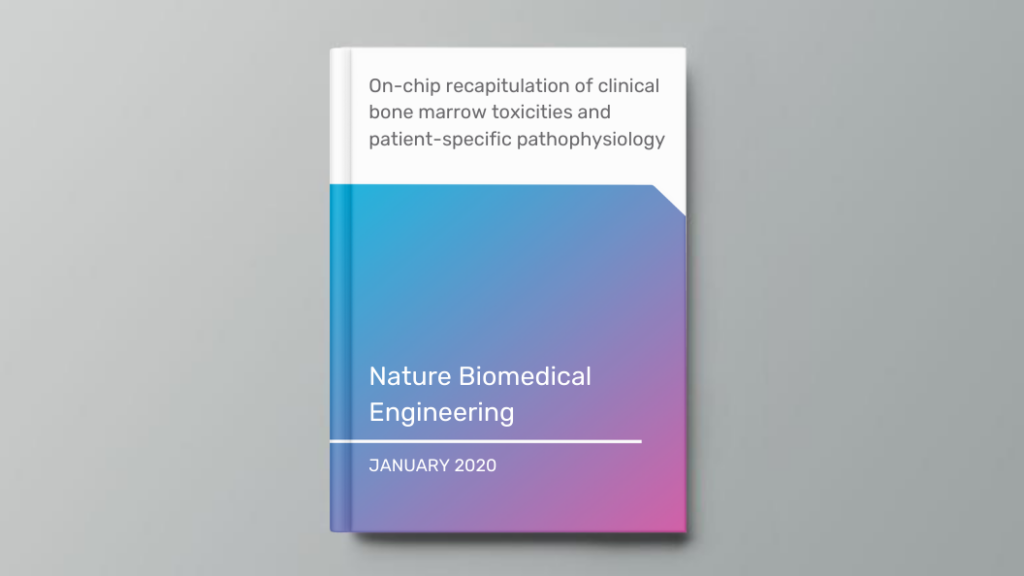Organ Model: Bone Marrow
Application: ADME-Tox
Abstract: The inaccessibility of living bone marrow (BM) hampers the study of its pathophysiology under myelotoxic stress induced by drugs, radiation or genetic mutations. Here, we show that a vascularized human BM-on-a-chip (BM chip) supports the differentiation and maturation of multiple blood cell lineages over 4 weeks while improving CD34+ cell maintenance, and that it recapitulates aspects of BM injury, including myeloerythroid toxicity after clinically relevant exposures to chemotherapeutic drugs and ionizing radiation, as well as BM recovery after drug-induced myelosuppression. The chip comprises a fluidic channel filled with a fibrin gel in which CD34+ cells and BM-derived stromal cells are co-cultured, a parallel channel lined by human vascular endothelium and perfused with culture medium, and a porous membrane separating the two channels. We also show that BM chips containing cells from patients with the rare genetic disorder Shwachman-Diamond syndrome reproduced key haematopoietic defects and led to the discovery of a neutrophil maturation abnormality. As an in vitro model of haematopoietic dysfunction, the BM chip may serve as a human-specific alternative to animal testing for the study of BM pathophysiology.

